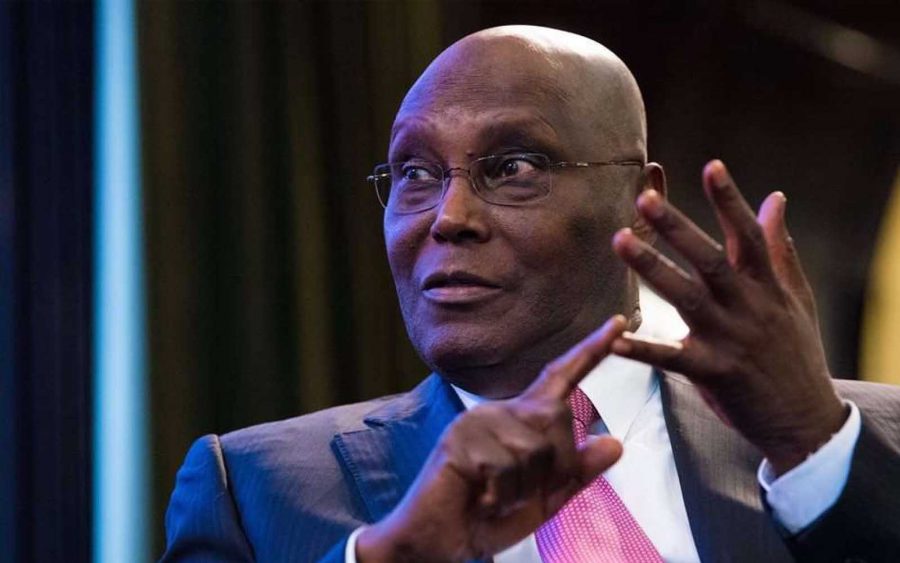Presidential candidate of the People’s Democratic Party (PDP) Atiku Abubakar had harsh words for the Nigerian National Petroleum Corporation (NNPC) and the Central Bank of Nigeria (CBN) Governor Godwin Emefiele.
The former Vice President made the remarks in an interview today.
On the CBN Governor
Atiku stated that there was a need for the right people to be put in place at the apex bank.
I don’t think he’s pursued the right policies. We have to have the right people in there.
Criticism of the Emefiele comes on the heels of darts thrown by President Muhammadu Buhari while being interviewed by Thisday. Buhari had stated that he had left the CBN Governor in power, in order to account for funds spent by the previous administration.
I went to the Central Bank and said, ‘oya, this is what is happening. Why?’ I refused to remove him (CBN Governor) because he had to give account.
On the NNPC
The PDP candidate stated that there was mafia in the state-owned oil corporation.
There is really a mafia in there, people who benefit personally at the expense of the country. But I have the political will and courage to do it. We don’t intend to privatize the whole of NNPC, but reduce the government’s interest to a minority and allow the private sector to drive the oil and gas industry.
Despite the challenges, the former Vice President has insisted he will privatize the corporation, even at the expense of his life.
I am committed to privatizing the NNPC. Even if they are going to kill me, I will do it.”
President Muhammadu Buhari, in August last year, refused to assent to the Petroleum Industry Governance Bill (PIGB). The President had attributed his action to three concerns:
- The provision of the bill permitting the Petroleum Regulatory Commission to retain as much as 10 percent of the revenue generated could affect FAAC allocations.
- Expanding the scope of Petroleum Equalisation Fund (PEF) was at odds with the administration’s policy.
- Some legislative drafting concerns which, if assented to in the form presented, will create ambiguity and conflict in interpretation.





















